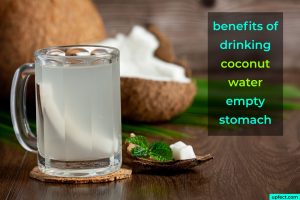
What is Ginger?
Ginger Benefits Tea
How to Make Ginger Tea
- First of all, take your ginger and peel it as if were a potato. Make sure all of the skin is removed from every nick and cranny.
- Then you will want to slice it into thin slices so that you can as much surface area as possible.
- Place the pieces of ginger in a pot and add about 1 liter of water. You can drink it hot like tea or drink it cold after refrigerating it overnight.
Ginger Benefits Oil
How to Make Ginger Oil
How to Use Ginger
- Fresh ginger, grated or pureed, brings wonderful zest to hot, creamy winter soups. Sweet potato soup miso and ginger. This spicy carrot ginger soup is an easy winter weeknight meal.
- In hot tea, we drink gallons of hot ginger tea in the fall and winter.
- We like spicy ginger with tender, flaky fish.
- Ginger tea for acne, place 1 tablespoon of peeled and minced ginger root in a pan, and add 2 cups of boiled water to it. Simmer for 5 minutes on low heat, then remove and steep for 10 minutes. Once it is cooled a bit, stir in 1 tablespoon of raw honey and drink twice a day.
- Ginger clay mask for skin, clay will reduce inflammation, and remove excessive skin oiliness, as well as dead skin cells and other impurities that cause acne. Take 1 tablespoon of peeled and minced ginger root, and blend it to make a paste-like substance. Mix it with clay and rose water (as much as to make a paste), apply to the skin, and leave it on until dry. Then rinse off with water and pat dry your skin. Apply an oil-free moisturizer if needed.
- Ginger makes an excellent remedy for natural hair growth. It has essential vitamins and minerals that promote hair growth. When you use it as a hair treatment, it improves circulation and leaves your hair feeling tingly with a fresh smell. Ginger contains chains of fatty acids such as linoleic acid. which nourish your hair and prevent from thinning keeping it healthy and strong. Ginger has potent antifungal properties that help control dandruff. Ginger acts as a natural conditioner if your hair is dry. Ginger on your hair for hair growth. Ginger with carrier oil you will need one tablespoon ginger juice, 1 tablespoon carrier oil, olive, jojoba coconut, etc. Procedure wash and peel a fresh ginger root and extract 1 tablespoon juice from it. And this to the oil how to apply massage the mixture into the scalp and leave it on for about half an hour. You can then wash your hair using a mild shampoo. For best results do this 1-2 times a week.
Ginger Benefits for Women
Prevents menstrual cramps
Cramps are the body’s way of alarming an individual to danger or damage. In this case, prostaglandins, which are hormones that function as chemical messengers, are the key activators of symptoms such as cramps, pains, and fevers. Gingers helps by reducing the levels of prostaglandins in the body, hence relieving the cramps.
Ginger of Benefits
Improves bone health
Treats diarrhea
ginger has been used since ancient times to cure diarrhea, and it was more recently proven by researchers that ginger indeed helps since it prevents stomach spasms and gases that contribute to and stimulate diarrhea.
Removes excess gas
excess gas does more than leave you in an uncomfortable situation if you can’t hold your gas to yourself. Ginger is a very strong carminative, meaning it forces the gas down and out in a healthy way, and also prevents additional gas from building up again.
Aids in digestion
ginger has been discovered to be a facilitator of the digestive process. The elevated sugar levels after a meal may cause the stomach to reduce its natural rate of emptying its content. Ginger helps in regulating high blood sugar levels that may disrupt digestion and soothe the stomach, thus, maintaining its regular rhythm. Along with that, ginger has several compounds that improve the absorption of nutrients and minerals from the food we eat.
Prevents Cancer
gingerols, the same compounds which give ginger its anti-inflammatory qualities, have also been shown to prevent carcinogenic activity in the colon that can lead to colorectal cancer. This is yet another way that ginger benefits the gastrointestinal system, making it such a perfect addition on the side of every meal.
Detoxifies and disinfects
ginger is good at promoting sweating in those who eat it, which is always a good thing- in moderation of course. Sweat not only cleans out the pores and allows your body to eliminate toxins through the liquid, but research has also shown that sweat includes a powerful germ-fighting compound.
Enhances sexual activity
It’s known to be an aphrodisiac, ginger has been used for years to arouse desire and enhance sexual activity. Ginger’s scent has a unique appeal that helps in establishing a sexual connection. Ginger also helps increase blood circulation, hence blood flows more easily to the midsection of the body, an important area for sexual performance!
Reduces nausea
studies have concluded that ginger helps in curing nausea connected with pregnancy, motion sickness, and chemotherapy. Its quick absorption and rapid regulation of body functions cure nausea without the side effects of modern medications.
Treats flu
ginger has been prescribed to fight illness and infection for ages. Its soothing effect helps to reduce the body’s emergency symptom responses to the damaged cells in the body. While the white cells work on defending against the illness, ginger acts as a barrier to the high levels of prostaglandins that induce fever, headaches, and cramps. There are many other potential health benefits of ginger currently under research, from reducing heart disease, migraines and depression, and curing stress-related anxiety disorders.
- ginger tea for reducing pain during periods.
- For dealing with allergies.
- Ginger can also help to inhibit some brain-damaging processes in the body.
- Asthma patients can also benefit from ginger due to its asthma suppressing properties.
- Ginger helps to reduce hepatotoxins which affect the liver. Ginger oil protects against obesity-related liver disease.
Ginger Benefits Nutrition
provides:
1 tablespoon (2 g) of fresh ginger has:
- Water: 1.58 g
- Energy: 1.6 kcal
- Total Carbohydrate: 0.356 g
- Dietary fiber: 0.04 g
- Sugar: 0.034 g
- Protein: 0.036 g
- Total fat: 0.015 g
Vitamins and minerals
- Sodium: 0.26 mg
- Potassium: 8.3 mg
- phosphorus: 0.68 mg
- Calcium: 0.32 mg
- Iron: 0.012 mg
- Magnesium: 0.86 mg
- Vitamin C: 0.1 mg
- Vitamin B6: 0.003 mg
- Vitamin E: 0.005 mg
Side Effects of Ginger
- Pregnant woman using ginger during that time of pregnancy is a controversial topic. Experts say that ginger supplements in large doses can lead to miscarriage and other complications for pregnant women.
- If taken in large quantities, ginger can cause diarrhea. Because ginger accelerates the passage of food and stool through the intestines.
- Moreover, research warns against eating too much ginger while are on blood pressure, lower medication. On the other hand, high doses of ginger can also aggravate certain conditions, high blood pressure or hypertension is one of them.
- A high dose of ginger can also the heart condition by interfering with antihypertensive therapy.
- Ginger may enhance the effects of the medication and cause hypoglycemia or excessive lowering of blood sugar.
- Ginger may cause skin and eye irritation. According to an Iranian study, the most common allergic reaction to ginger is a skin rash.





Great content! Super high-quality! Keep it up!